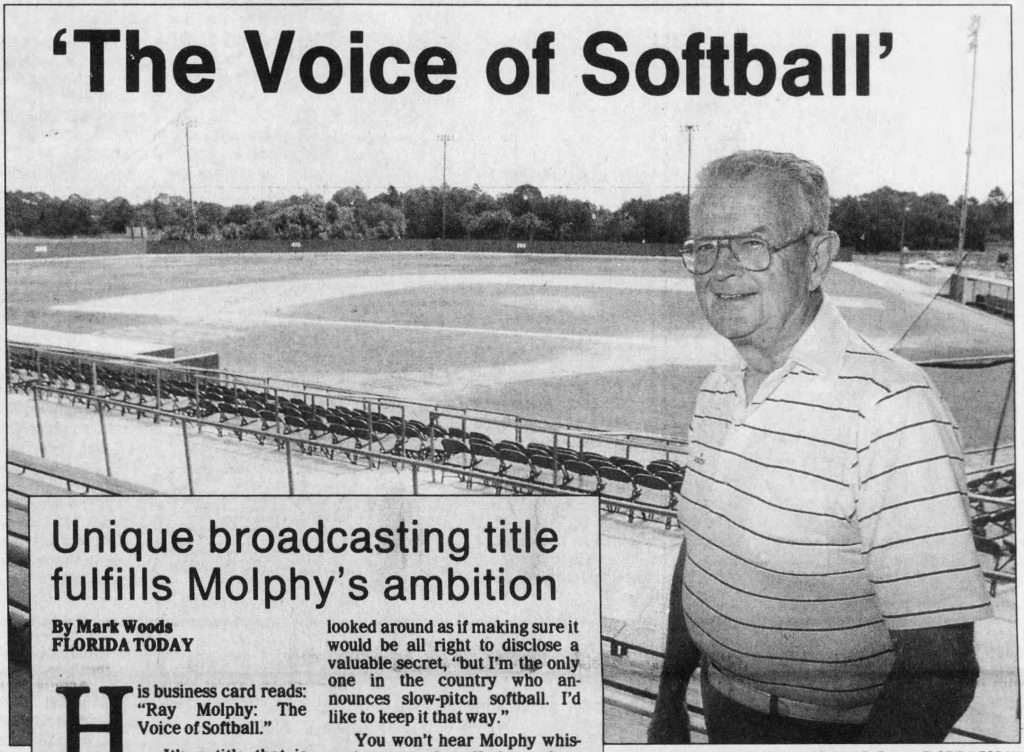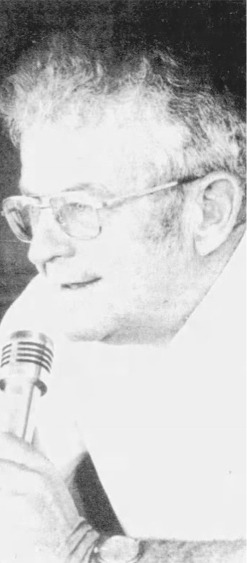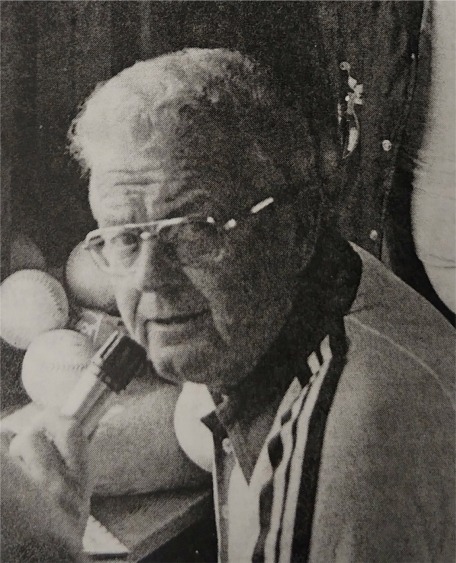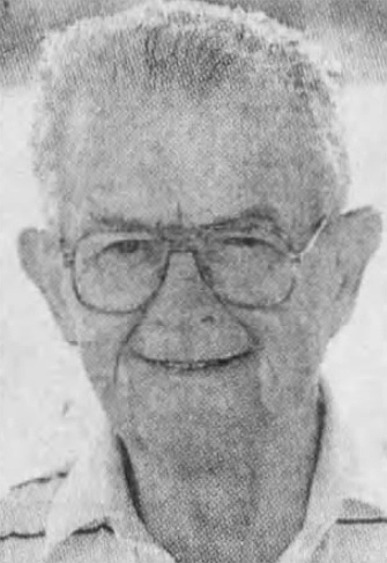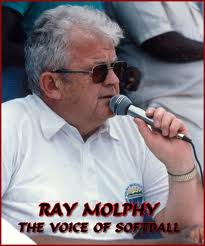The awful screech from the public address system at Municipal Stadium was pure noise, and loud at that. It worse than any amateur rock band, worse than any late-night horror movie.
It was less than five minutes before the opening game of the 20th annual Stroh’s softball tournament, but Ray Molphy, softball’s best and most well-known voice, wasn’t worrying yet.
“I hope you guys know what you’re doing,” he said to the two men hurriedly trying to correct the mess. “because I don’t know a thing about those systems. All I do is talk into the microphone.”
Molphy, busy filling in his scoresheet and his position-by-position chart. turned to the reporter. “See the trials and tribulations of this job?” he asked. laughing.
In 25 years of public address announcing. Molphy’s come to expect such problems. Maybe not like them, but expect —and accept — them.
He began by announcing high school games in Seaford, N.Y., on Long Island. He now does all of Hofstra University’s football and basketball games, the ECAC basketball games at Nassau Coliseum and the basketball games of perennial power Long Island Lutheran High.
He does junior international basketball. He hosts an Inter-national Night program for a various foreign nation every year before crowds of 10,000-12,000. And he even did a New York Nets game when the regular announcer didn’t show.
But Ray Molphy will not be remembered as the Voice of Hofstra. He will be remembered as the Voice of Softball.
He’s announced the American Softball Association nationals the past “14 or 15” years. Last year, he also did the U.S. Slo-Pitch Softball Association nationals. In the first infant year of the National Slo-Pitch Conference, he did its tournaments, as he had done games in 1977 for the new pro league. He’ll do its all-star game July 22 in Louisville, Ky.
Already this year, he’s been to Las Vegas, Concord, Calif., Jacksonville, Fla., Winston-Salem, N.C., Chattanooga. Tenn., Springfield, Ohio.
“This is one of the best,” he said of Springfield. “Cleveland-Parma — that is really the mecca of slow-pitch softball. It turns out more for softball than any other.
“I’ll be going from March to mid-September,” he said. Then it’s football and basketball. “It’s a year-around job.”
Job? Not quite. The NSPC, for instance, merely pays softball’s best announcer expense money. No salary. And since he’s on the road on Fridays and sometimes even Mondays, he uses his six weeks of vacation time just to announce softball.
And doing all these weekend tourneys should qualify him for some sort of marathon talk award. After flying into Springfield Friday, for instance, he did all four games. Saturday, he did nine, working from 9 a.m. until around midnight. ;Today, he’ll be back at 12:30 p.m. for the two semifinals and the title game.
It’s a long, grueling schedule. Howard Cosell would never do it. But Ray Molphy? His only complaint is that it’s not his job.
“Is it my living? Unfortunately, no,” the 56-year-old Molphy said. “I work in personnel administration at Union Carbide.
“I was a frustrated jock. That’s what I wanted to be. So I made it My avocation instead. Listening to Molphy’s deep. sonorous voice, his colorful, varied delivery developed through years as a one-man announcing team, you’re surprised he isn’t announcing for some big station or network — because he certainly would like to.
“I think of it all the time, but I fed some radio reports on the ASA back to Long Island.” But that was about it.
“That’s my problem. I don’t have enough chutzpah. “Are there any openings in Springfield?” He laughed.
But he meant it. Molphy would love a job doing what he loves — especially since Union Carbide is moving to Connecticut within the next 18 months and “I’m not going with them. Then I’ll get serious about doing something.”
Until then, he’ll be doing what he does best — announcing softball games — every weekend. He sees a bright future for the NSCP, which just might mean a real job — pay and all for him in the future.
“Already, a number of teams want to come in next year,” he said of the 22-team league, which has more than doubled since 1977. “It’s the best thing that’s happened to slow-pitch softball. I think it might possibly get into a regional setup to minimize travel. But the level of competition — it just pro-vides fans everywhere with .the best in softball.
“The good thing about this new conference is the fences are 300 feet, the bases 65 feet. That’s really separated the men from the boys in the home run competition. There’s con-siderably fewer homers in the conference than in most week-end tournaments where the bases are 60 feet and the fences are 275-290 feet. “This is much more enjoyable. You see the double plays, guys getting thrown out at first, legitimate home runs, lower-scoring games.
“This,” Molphy continued. “is not just a trot-around-the-bases league. Last week, for instance, there were two unassisted double plays in consecutive innings. “I love it.” Now if he’d only get paid. Now that would be heaven.

